TABLE OF CONTENTS
Best French Wine Types
Châteauneuf-du-Pape is the largest and the most important appellation in the southern part of the Rhône Valley that comprises of five communes. Most Châteauneuf-du-Pape wines are predominantly red blends, with a small percentage of whites.
Officially eighteen grape varieties are allowed, including different colors of the same grape variety. However, the most common are Grenache, Mourvèdre, Syrah, and Cinsault grapes. These rich wines can greatly differ in style, but they are mainly characterized by the spicy and earthy aromas of red berries, black pepper, tar, and leather.
THE BEST Châteauneuf-du-Pape Wine Appellations
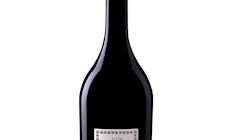
Domaine de la Solitude
2021 Châteauneuf-du-Pape Vin de la Solitude Red
James Suckling - 99 points 2024
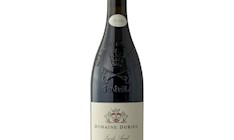
This French wine region is located in the Loire Valley (Touraine district), and it is known for the production of varietal white wines that are predominantly produced from Chenin Blanc. Although the appellation also includes sparkling and dessert wines, Vouvray is mostly known for their crisp dry wines (sec).
These wines are characterized by their straw yellow color, vibrant acidity, and complex aromas that typically include floral, citrus, and white fruit notes. Dry Vouvray wines have excellent aging potential. With age, they evolve, but remain fresh, aromatic, and lively, while their aromas may develop into ripe white fruit, almonds, and hazelnuts.
Burgundy is a world-famous French wine region that produces some of the best and most expensive wines in the world. Located in the east-central part of France, the area is dominated by Pinot Noir and Chardonnay. Other red and white grapes such as Aligoté, Pinot Gris, or Gamay are also used, but on a much lower scale.
Burgundy has more than 100 approved wine-growing areas, all regulated by a complex quality system that divides the region into grand cru, premier cru, village wines, and regional appellations. The wines are greatly influenced by terroir and show great diversity in flavors and aromas.
THE BEST Burgundy Wine Appellations
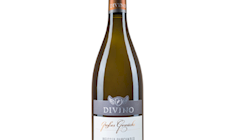
Riesling is an aromatic white grape native to Germany. It is a terroir-driven wine known for its versatile character and intense aroma, usually reminiscent of citrus, petroleum, and white flowers. In Alsace, Riesling is one of the main varieties.
Although the grape is often associated with sweeter styles, most of the examples coming from Alsace are bone dry. Riesling from Alsace can slightly vary in character, from leaner to more opulent, flavor-packed expressions, but it is generally complex, richly flavored, and high in acidity.
THE BEST Alsace Riesling Wine Varieties
Chambertin is a French appellation and a Grand Cru vineyard located in Burgundy, more precisely in the Côte de Nuits (Côte d'Or) wine region. The designation produces red wines that are mostly varietal and based on Pinot Noir.
They typically display complex aromas of red and dark fruit that are often complemented by smoky notes of spices and licorice, as well as subtle herbal and floral nuances. Often praised as one of the best expressions of Burgundy region, these full-bodied and powerful red wines are a perfect match to game, but they can also work well with lamb, poultry, or beef, preferably served in rich wine-infused sauces.
The regulations also allow some wines from the neighboring Chambertin-Clos de Bèze to be labeled as Chambertin.
THE BEST Chambertin Wine Appellations
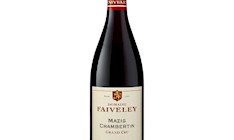
Gewurztraminer is a pink-skinned grape that produces some of the most aromatic and complex white wines in the world. The exact origin of Gewurztraminer is hard to trace, but the grape is related to Traminer family that is cultivated across Europe, and although Gewurztraminer has shown success in Germany, Austria, Australia, Washington and California, the French Alsace region remains its foreground.
Alsace produces varietals that are rich and typically deeply colored, often low in acidity and high in alcohol with exotic aromas of lychee and rose petals. Their character and the body heavily depends on the terroir and ripeness of the grapes, and they may range from dry to off-dry and sweet styles.
THE BEST Gewurztraminer d'Alsace Wine Varieties
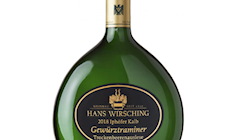
Weingut Hans Wirsching
Iphöfer Kalb Gewürztraminer Trockenbeerenauslese
Frankfurt International Trophy - Grand Gold 2022
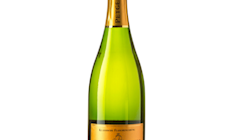
Weingut Ökonomierat Petgen-Dahm
Petgen-Dahm Gewürztraminer-Sekt b.A. "Les deux dames" klassische Flaschengärung
Asia Wine Trophy - Grand Gold 2017
This late-harvest dessert wine of Bordeaux is predominantly made with Sémillon, the region's rare golden-skinned white grapes affected by noble rot, though the blends often include Sauvignon Blanc and Muscadelle. The appellations may include Sauternes, Barsac, Cérons, Sainte-Croix-du-Mont, Cadillac, Loupiac, Premières Côtes de Bordeaux, and Côtes de Bordeaux Saint-Macaire.
In general, Sauternes wines exhibit pronounced notes of fruit, butterscotch, caramel, and spices, along with floral notes coming from the Muscadelle grapes. Noted for their full body and freshness, Sauternes wines pair nicely with soft cheeses, blue cheeses, washed rind cheeses, terrines, foie gras, and various fruit-based desserts.
THE BEST Sauternes Wine Appellations
Cahors is a French wine region where the principal grape is Malbec, with small percentages of Tannat and Merlot. Although Malbec is nowadays primarily associated with Argentinian Mendoza region, the grape originated in France, but in the 1950s, it was almost entirely wiped out by frost.
Cahors now remains as the only French region that produces Malbec-based wines. Often dubbed as black due to their dark purple color, young wines from Cahors are powerful and rich in tannins, and they typically display aromas of dark fruit and spices.
Bordeaux region is the largest wine growing area in France that comprises of more than fifty different appellations. Bordeaux wines can range from massively produced everyday table wines to prestigious and expensive vintages. The predominant style is red, but the region also produces sweet and dry whites, rosés and sparkling wines.
Red Bordeaux wines are mostly produced from Cabernet Sauvignon, Cabernet Franc, Petit Verdot, Merlot, Malbec, or occasionally Carménère. They are soft, elegant and silky, with aromas of dark fruit, truffles, spices, smoke, tar, and leather.
Chablis is the name of the wine region in northern Burgundy, but it is also the name of a white wine coming from this very region. Chablis is made with 100% Chardonnay, but unlike other Chardonnay wines, it rarely utilizes oak-aging, resulting in different taste profile and style.
It has white flower and citrus aromas with light-bodied and dry flavors of pear, salinity, and minerality. Among the most desirable traits of Chablis is a long finish of flint-like minerality and high acidity, which makes the wine exceptionally well for pairing with creamy sauces, chicken, trout, bass, quail, clams, cod, halibut, or scallops.
TABLE OF CONTENTS
Best French Wine Producers
Louis Roederer is one of the most prestigious and oldest independent Champagne houses, synonymous with luxury, tradition, and innovation. Founded in 1776 in the heart of Champagne, in the city of Reims, this family-run house has been nurturing the art of producing exceptional Champagnes for centuries, captivating connoisseurs worldwide.
The true rise of the house began in 1833, when Louis Roederer took over the family business and introduced a revolutionary approach—unlike other producers who purchased grapes, he decided to own and cultivate his own vineyards. This decision allowed him complete control over quality, terroir, and the unique style of his Champagnes, establishing the Louis Roederer brand’s distinctive signature.
AWARDS
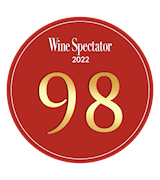
Wine Spectator - 98
2022
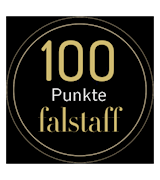
Falstaff - 100

Falstaff - 99
BEST Louis Roederer Wines
Krug is one of the most prestigious and revered Champagne houses, renowned for its unwavering commitment to excellence and the artistry of champagne-making. Founded in 1843 by Johann Joseph Krug, this family-run house has always adhered to a philosophy of uncompromising quality, emphasizing the individuality of each vintage and terroir.
Krug stands apart with its unique approach—each bottle of champagne is crafted from meticulously selected wines from different years and vineyards, creating unparalleled depth, complexity, and richness. Their most iconic champagne, Krug Grande Cuvée, embodies this philosophy, blending up to 200 wines from over 10 different vintages to achieve perfect harmony and sophistication in every edition.
AWARDS
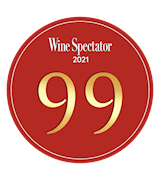
Wine Spectator - 99
2021

Falstaff - 100

Falstaff - 99
BEST Krug Wines
AWARDS
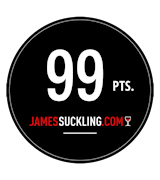
James Suckling - 99 points
2024

Falstaff - 99

Vivino - 4.6
BEST Champagne Billecart-Salmon Wines
The Champagne house Bollinger, founded in 1829 in Aÿ, France, stands as a symbol of excellence and tradition in the world of champagne. Bollinger is distinguished by its unique style that blends power, refinement, and complexity, allowing fruity aromas to fully express themselves.
Their wines, such as the iconic Special Cuvée, reflect richness and depth of flavor, thanks to a careful selection of grapes and traditional winemaking methods. For nearly two centuries, Bollinger has remained true to its family values and independence, which has enabled the house to preserve authenticity and consistent quality in its champagnes.
AWARDS

Falstaff - 100

Falstaff - 99

Vivino - 4.6
BEST Bollinger Wines
Charles Heidsieck is a prestigious Champagne house founded in 1851 in Reims, France, by Charles-Camille Heidsieck, famously known as “Champagne Charlie.” He was a pioneer in popularizing Champagne in the United States during the 19th century, earning a strong reputation thanks to his entrepreneurial spirit and charisma.
The house is renowned for its historic cellars, known as “crayères” — ancient chalk caves dating back to Roman times — which provide ideal conditions for aging Champagne. These cellars are recognized as a UNESCO World Heritage site. Throughout its history, Charles Heidsieck has earned acclaim from numerous royal and imperial families, a testament to the exceptional quality of its wines.
AWARDS

James Suckling - 95 points
2024

James Suckling - 94 points
2024

James Suckling - 93 points
2024
BEST Champagne Charles Heidsieck Wines
For over 175 years, Pol Roger has stood as a symbol of uncompromising quality, refined craftsmanship, and understated sophistication in the world of champagne. Remaining proudly family-owned through five generations, the house is celebrated for its consistent style—fresh, balanced, and remarkably elegant.
Every bottle is produced and aged in Pol Roger’s own deep chalk cellars, where ideal conditions allow the wines to mature slowly and gracefully. Known for their fine bubbles, purity of structure, and vibrant freshness, Pol Roger champagnes are equally at home in grand celebrations or quiet moments of indulgence.
AWARDS

Falstaff - 100

Vivino - 4.6
BEST Pol Roger Wines
Founded in 1729, Ruinart holds the distinction of being the oldest established champagne house, born from a vision rooted in enlightenment, craftsmanship, and a deep appreciation for both nature and art. For nearly three centuries, Ruinart has remained true to its refined, luminous style, with Chardonnay at the heart of its identity.
Ruinart champagnes are celebrated for their purity, freshness, and bright expression. Known for their finesse and delicate minerality, they offer subtle citrus and floral notes that bring lightness and vibrancy to every sip. Their uniquely shaped bottles – inspired by 18th-century wine flasks – reflect a perfect harmony of tradition and modernity.
Champagne Egly-Ouriet is a renowned Champagne house celebrated for its commitment to biodynamic and organic farming practices. With a focus on producing wines that express the true character of their terroir, the house has become a pioneer in the natural Champagne movement.
Founded by the Egly family, this boutique winery produces wines from some of the finest Grand Cru vineyards, ensuring that only the highest quality fruit is used. The house is known for its low yields, long maturation periods, and minimal intervention during fermentation.
The Taittinger Champagne House stands as a symbol of elegance, refinement, and unwavering commitment to quality. Founded in the heart of the Champagne region, this family-owned winery nurtures a long tradition of crafting exceptional champagnes that captivate the world with their freshness, finesse, and depth of flavor.
Unlike many major houses, Taittinger remains firmly in family hands, ensuring a personal dedication to every step of the winemaking process. Their vineyards span an impressive 288 hectares, with a significant portion planted with Chardonnay — a varietal that lends Taittinger champagnes their distinctive, sophisticated character.
AWARDS

James Suckling - 99 points
2024
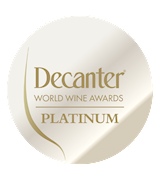
Decanter World Wine Awards - Platinum
2024, 2021, 2020, 2019, 2017
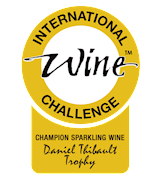
International Wine Challenge - IWC Champion Sparkling Wine 2020 - Daniel Thibault Trophy
2020
BEST Taittinger Wines
Dom Pérignon is more than a name – it is a symbol of prestige, artistry, and an unrelenting pursuit of harmony between intensity and elegance. Inspired by the legendary Benedictine monk who helped shape the future of champagne in the 17th century, the house today embodies innovation, legacy, and timeless luxury.
Every bottle of Dom Pérignon is millésimé – made exclusively from a single vintage. It is only produced in years when nature offers grapes of truly exceptional quality, and each vintage is a unique expression of that year’s character and energy. Dom Pérignon champagnes are known for their layered aromas, precise structure, creamy texture, and seamlessly integrated freshness.
AWARDS

Falstaff - 100

Vivino - 4.6
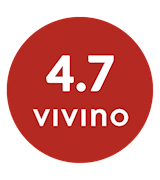
Vivino - 4.7
BEST Dom Pérignon Wines
TABLE OF CONTENTS
Best French Wines
Louis Roederer Cristal 2012 is a supreme champagne that perfectly embodies the prestige and tradition of this legendary house. Created exclusively in exceptional vintages, Cristal 2012 captivates with its brilliant golden hue and fine, persistent bubbles that hint at its complexity and elegance.
The 2012 vintage was marked by extreme weather conditions, yet through meticulous grape selection and a perfect balance between ripeness and acidity, a champagne was crafted that exudes freshness, precision, and depth of flavor. Its aroma reveals delicate notes of ripe yellow fruits, white flowers, blanched almonds, and subtle brioche, while the palate is elegant and multi-layered, with a silky texture and a long, mineral-driven finish.
AWARDS

Wine Spectator - 98
2022

Falstaff - 99
Krug Grande Cuvée 172ème Édition is a magnificent expression of the art of champagne blending, born from the House of Krug’s unwavering desire to create the most exceptional champagne each year, regardless of vintage conditions. This edition is composed of an impressive 146 wines from 11 different years, with the oldest dating back to 1998 and the youngest from 2016, forming a harmonious balance of depth, elegance, and complexity.
The blend features 44% Pinot Noir, 36% Chardonnay, and 20% Meunier, with reserve wines making up 42% of the final composition, adding richness and roundness to every sip. Aged for approximately seven years in the cellars of Krug, this champagne achieves remarkable maturity and aromatic opulence.
AWARDS

Wine Spectator - 99
2021

Vivino - 4.6
Le Clos Saint-Hilaire 2002 is an exceptional champagne from Billecart-Salmon, crafted exclusively from 100% Pinot Noir grapes harvested from a single hectare vineyard in Mareuil-sur-Aÿ. This vineyard, known as Le Clos Saint-Hilaire, is renowned for producing champagnes of remarkable complexity and freshness.
The 2002 vintage is particularly notable, having spent 15 years aging on the lees before its disgorgement in May 2018. This extended maturation period contributes to its depth and character. The champagne exhibits a sustained yellow-gold hue with ultra-fine bubbles.
AWARDS

Falstaff - 99

Vivino - 4.7
Krug Clos du Mesnil 2008 is an exceptionally elegant and rare champagne that perfectly captures the purity of a single vineyard, a single vintage, and a single grape variety – Chardonnay. Sourced from a 1.84-hectare walled vineyard located in the heart of Le Mesnil-sur-Oger, a village renowned for its exceptional Chardonnay, this champagne reflects the unique character of its terroir with the precision and artistry for which the House of Krug is celebrated.
The 2008 vintage was among the coldest of the decade, allowing for slow ripening and the development of remarkable freshness and structure. In the glass, it reveals a radiant golden hue with fine, delicate bubbles, while the nose is layered with notes of citrus, light toast, orange madeleine, and a hint of mint.
AWARDS

Falstaff - 100
Krug 2008 is a champagne of remarkable elegance and depth, perfectly embodying the unique character of one of the freshest and most classically styled vintages in Champagne in recent decades. Created in a year with the fewest hours of sunshine in nearly half a century, this vintage was nicknamed “Classic Beauty” by the House of Krug for its superb balance of tension, finesse, and structure.
The blend is composed of 53% Pinot Noir, 25% Meunier, and 22% Chardonnay, resulting in a complex and harmonious wine with a deep golden hue, exceptional aromatic range, and luxurious texture. On the nose, it reveals rich notes of honey, licorice, menthol, orange zest, and grapefruit, while the palate offers vibrancy and elegance with flavors of quince, candied citrus, yellow kiwi, baked apple, herbal nuances, and floral undertones.
AWARDS

Falstaff - 100
Louis Roederer Cristal Brut 2008 is a prestigious champagne that reflects the perfect blend of tradition, innovation, and exceptional winemaking artistry. As one of the most esteemed champagnes in the world, Cristal 2008 symbolizes purity, longevity, and refinement, offering a unique experience for true champagne enthusiasts.
Made from carefully selected 60% Pinot Noir and 40% Chardonnay, Cristal 2008 embodies power, elegance, and mineral freshness. The grapes are sourced from the finest Grand Cru vineyards of Louis Roederer, while its extended aging process in chalk cellars ensures unparalleled complexity and depth of flavor.
AWARDS

Falstaff - 100
Louis Roederer Cristal 1996 is a legendary champagne that reflects the exceptional quality of the vintage, precision in vinification, and longevity characteristic of the Cristal label. Created in one of the most acclaimed years in the history of Champagne, this prestigious cuvée is the perfect blend of power, finesse, and complexity.
This vintage is known for its exceptionally high acidity and grape ripeness, giving it remarkable aging potential. Composed of 60% Pinot Noir and 40% Chardonnay, Cristal 1996 offers a rich and elegant character, developing intricate aromas that continue to evolve beautifully over time.
AWARDS

Falstaff - 100
Louis Roederer Cristal Millésime Brut Rosé 1996 in magnum format (1.5 liters) is a prestigious champagne that reflects the exceptional reputation of the Louis Roederer house. This champagne is made from carefully selected grapes from the 1996 vintage, which is considered one of the best years for champagne production.
Cristal was first created in 1876 for the Russian Tsar Alexander II, and it was named after the crystal bottle used to meet the Tsar’s demand for a transparent bottle that would reveal any tampering with its contents. Today, Cristal remains synonymous with luxury and quality.
AWARDS

Falstaff - 100
Krug Collection 1990 is an exceptionally elegant champagne that reveals a new dimension of an already legendary vintage, after more than three decades of patient aging in the cellars of the House of Krug. This carefully preserved edition represents the perfect harmony of power, freshness, and complexity, composed of 40% Pinot Noir, 37% Chardonnay, and 23% Meunier, resulting in a rich and rounded wine with a deep golden hue that reflects the sunny character of the year.
The nose captivates with notes of plums, cinnamon, gingerbread, and crème pâtissière, while the palate enchants with its creamy texture and vibrant flavors of brioche, candied and dried citrus fruits, apricot, orange marmalade, and lemon tart, accented by lightly toasted nuts and a touch of honey.
AWARDS

Falstaff - 100
Krug Clos d’Ambonnay 2006 is an exceptionally rare and magnificent champagne that fully embodies the power, precision, and elegance of a remarkable terroir—an intimate 0.68-hectare walled vineyard located in the village of Ambonnay, the heartland of Pinot Noir.
The 2006 vintage offered a perfect balance of richness and freshness, reflected in the expressive character of this extraordinary wine. In the glass, it dazzles with a brilliant golden hue, while the nose reveals seductive aromas of caramelized apple, hazelnut liqueur, bitter orange, and dates, all wrapped in refined harmony and depth.
AWARDS

Falstaff - 100
TasteAtlas food rankings are based on the ratings of the TasteAtlas audience, with a series of mechanisms that recognize real users and that ignore bot, nationalist or local patriotic ratings, and give additional value to the ratings of users that the system recognizes as knowledgeable. For the “Top 100 French Wines” list until April 09, 2025, 2,094 ratings were recorded, of which 1,876 were recognized by the system as legitimate. TasteAtlas Rankings should not be seen as the final global conclusion about food. Their purpose is to promote excellent local foods, instill pride in traditional dishes, and arouse curiosity about dishes you haven’t tried.





























































































































































































































































